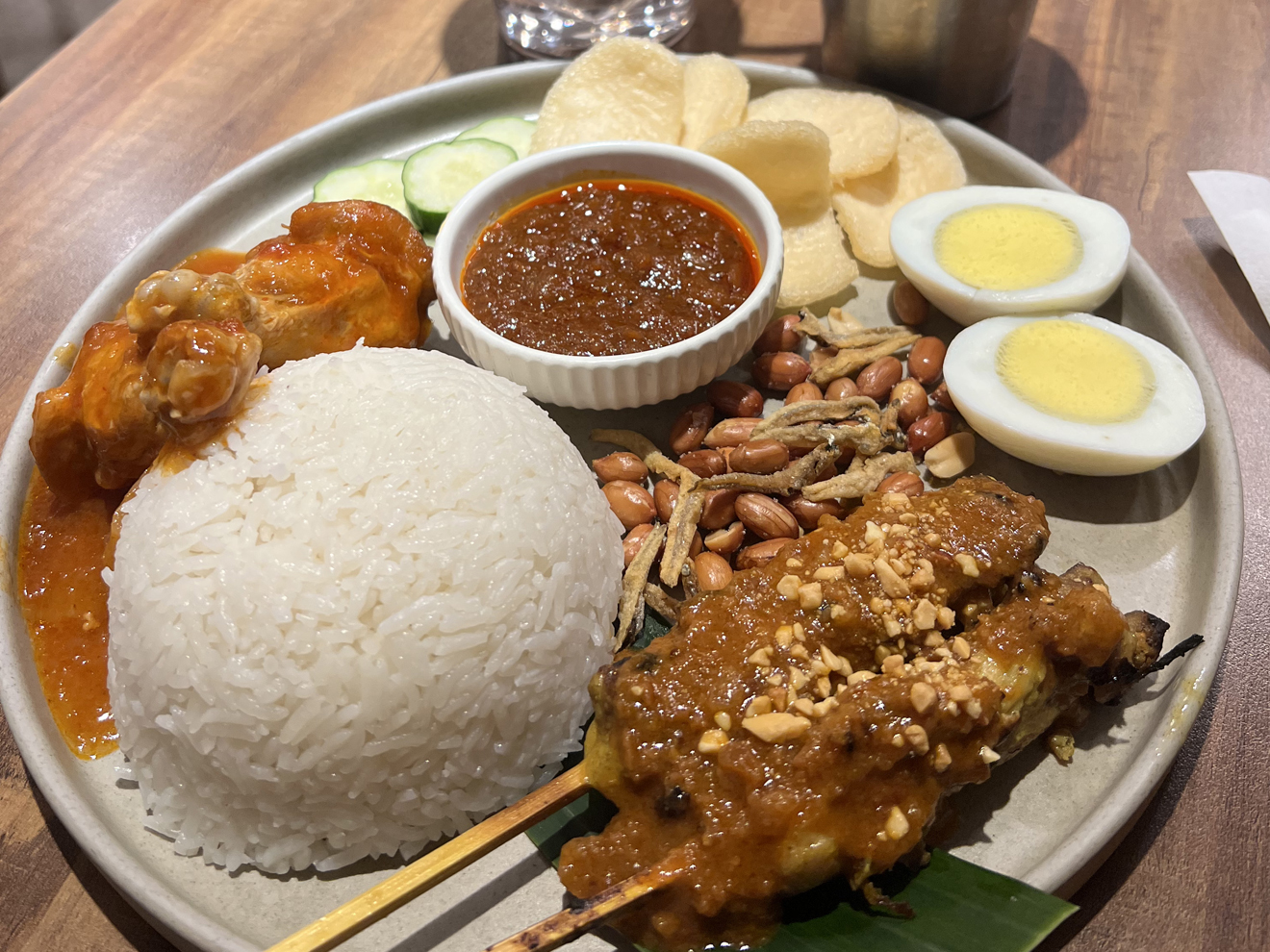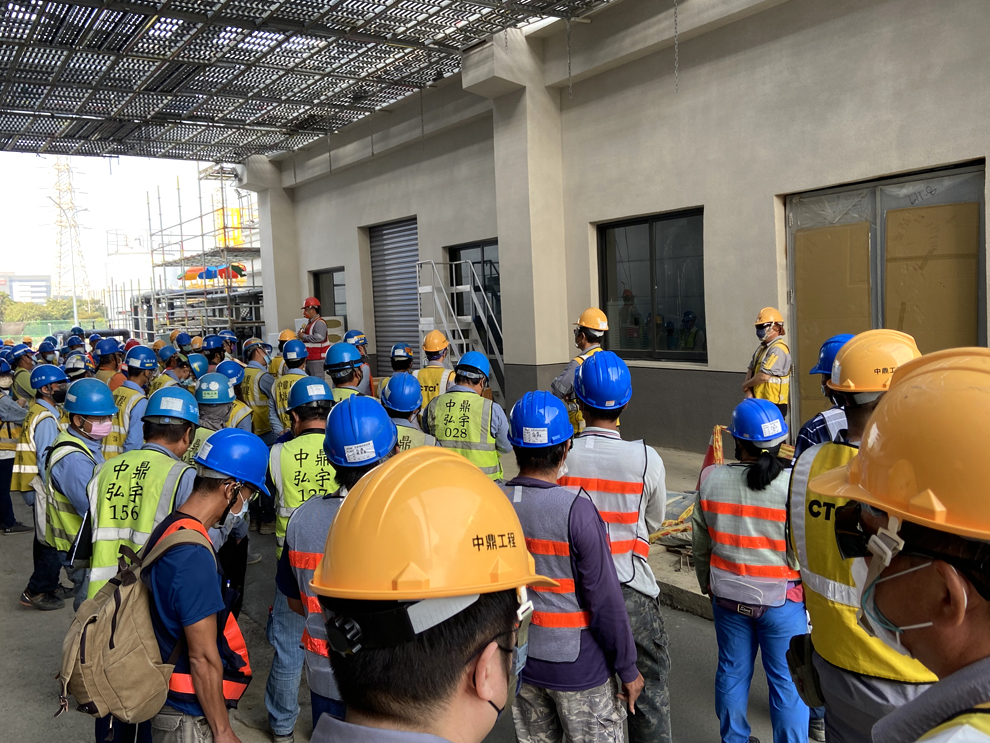CTCI Family
CTCI地球村
Blending into Taiwanese Culture: My Story as Engineer at CTCI
— Dexter Leong, Engineer at HSE Management Department, CTCI Corporation
Could you briefly tell us about yourself?
My name is Dexter Leong from Malaysia. After graduating from high school, I traveled to Taiwan for further education, where I completed my undergraduate and graduate studies. I have lived in Taiwan for more than 16 years. My academic background is in public health, closely tied to occupational safety and environmental management. After completing my studies and gained diverse work experience, I joined CTCI as an HSE (health, safety and environment) engineer in the HSE Management Department. Currently, my primary workplace is CTCI's First Headquarters, where I am involved in the quoting and execution of projects from various business units. My responsibilities include ensuring that the HSE requirements outlined in regulations and client contracts are integrated into the project execution process to reduce the risk of non-compliance or accidents. Additionally, I formulate policies at the headquarters level to improve the efficiency of HSE management in projects, and ensure that these policies are implemented through site audits, as well as site documents and practices. When stationed at a project site, my role shifts to managing the HSE operations on-site and helping subcontractors meet the required standards. I also enhance workers' safety awareness through training, toolbox talks, and discussions, fostering a safety culture on the site.
What made you join CTCI?
I have been deeply impressed with CTCI’s comprehensive management systems and industry-leading position as Taiwan's largest EPC contractor and one of the world’s top 100. Here, not only can I apply my HSE expertise, but can also learn project management and construction techniques, which are invaluable for my personal and professional growth. Collaborating with colleagues and subcontractors from diverse backgrounds has also enhanced my ability to integrate and lead cross-disciplinary teams. In this job, I have come to deeply appreciate the art of safety communication. Everyone has a different perspective on risk, and I have learned to stand in others' shoes to help them understand the meaning of risk management and to coordinate all parties to reach a consensus. The most important thing is that, regardless of background or position, everyone shares the same goal of ensuring workers safely return home. The most impactful phrase I’ve heard in the company is "I am Reliable." This simple phrase holds deep meaning and has become my personal motto for self-reminder in the workplace. I constantly use this phrase to motivate myself to become a trustworthy person when performing my professional duties or communicating with others. I hope to continually improve myself, so that my team partners and clients can feel that I am someone they can rely on.
Which country are you from? What interesting cultures or traditions does your country have?
Malaysia is a country of vibrant diversity, home to three major ethnic groups: Malays, Chinese, and Indians. This multiculturalism brings a rich tapestry of traditions, festivals, and cuisine to the country. While many Chinese festivals are celebrated similarly across Malaysia and Taiwan, there are still slight differences. For example, during the Mid-Autumn Festival in Malaysia, children usually parade with lanterns, whereas in Taiwan, barbecue gatherings dominate the streets and alleys. I was amazed by such cultural contrast when I first arrived in Taiwan, and even more so when I later learned that the barbecue tradition stemmed from an old barbecue sauce advertisement. It’s incredibly fascinating! When it comes to food, I always enjoy introducing Malaysians' favorites to Taiwanese people, like Nasi Lemak (which is coconut milk rice) and Bak Kut Teh (pork rib soup). These mouthwatering dishes are a feast for the senses. In recent years, more authentic Malaysian restaurants have opened in Taiwan, providing me a comfort place to satisfy my cravings for taste of home. I highly recommend everyone to have a try on these tasty and exotic Malaysian cuisine!

This is Nasi Lemak paired with satay, a Malaysian delicacy. Definitely worth a try!
What is your native language? How many languages do you speak?
My native language is Cantonese. Since my grandmother was Hakka, my family also used Hakka to communicate with her in my early years. As a result, hearing Hakka in Taiwan now makes me feel so warm and nostalgic. In Malaysia’s education system, we are taught Mandarin, English, and Malay from a young age, so I can speak at least these three languages fluently. After joining CTCI, I often heard colleagues and site workers speaking Taiwanese. This workplace environment helped me gradually understand the language, and I would estimate that I now comprehend about 50% of it. I find Taiwanese to be a beautifully expressive language, rich in history and culture. Speaking Taiwanese, especially as a foreigner, often helps bridge connections with locals and showcases a unique sense of hospitality. For example, to express “excuse me,” I started saying "金歹勢啦" (jinpainsela) in Taiwanese instead of "不好意思"(buhaoyisi) in Mandarin. People often mistake me for a local Taiwanese due to such small gesture, which brings closer connection with the Taiwanese people.
Could you give us some examples of the foreign culture and people that impress you the most studying/working overseas?
Taiwan, an island nation surrounded by the sea, boasts an incredible array of natural and cultural attractions. Since my university years, I have been captivated by this land, especially its unique offshore islands. So far I’ve explored Kinmen, steeped in wartime history; Lanyu (the Orchid Island), famous for its flying fish season and indigenous culture; Penghu, with its stunning blue skies and crystal-clear waters; and Matsu, known for its majestic cliffside views. I always encourage both foreigners and Taiwanese friends to visit these beautiful islands to truly appreciate Taiwan's diversity and charm. For foreigners, traveling around Taiwan is an extraordinary experience. During my university years, I completed three round-island trips: one by train, one by motorbike, and one by bicycle. Each journey was filled with unforgettable memories. The highlight of these trips was interacting with locals, whose warmth and hospitality left a lasting impression on me, especially in rural areas. These encounters revealed the sincerity and friendliness of the Taiwanese people. These experiences not only deepened my understanding of Taiwanese culture but also made me value the time I spent living, studying, and working in Taiwan.

A picture taken from my round-island cycling trip back in the college years.
Could you share some interesting experience you had when working in CTCI?
One unforgettable experience occurred while I was working at a construction site. Most workers, especially skillful and elderly worker, often communicate in Taiwanese. To connect with them better, I was encouraged by my superior to deliver the briefing in Taiwanese during a safety toolbox meeting. The briefing ended with success thanks to intensive practicing for the whole evening. Despite my accent, the workers found it engaging and memorable. This experience taught me the power of communication in the listener's language, which not only fosters understanding but also builds trust. It also deepened my passion for learning new languages, as I realized how much it could bridge gaps and create meaningful connections.

Briefing an audience in Taiwanese during a safety toolbox meeting, which they found engaging.
